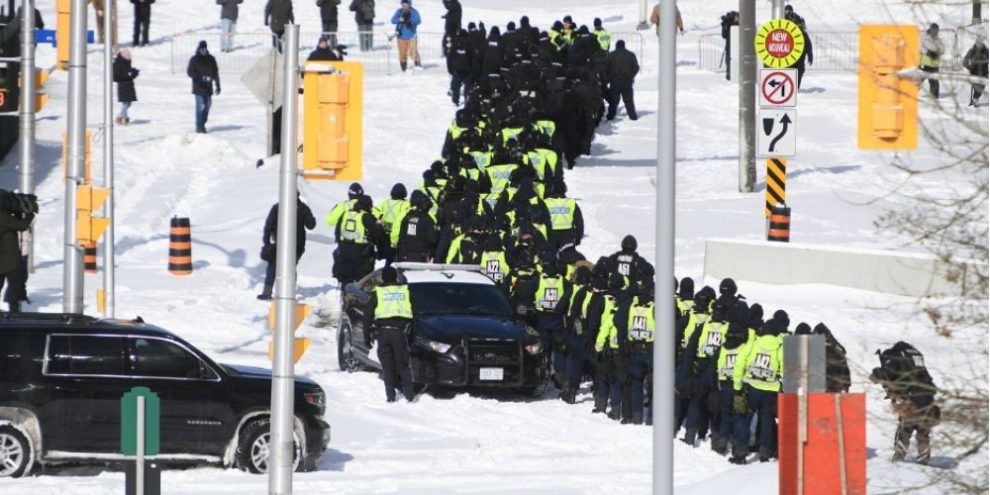
By Jim Bronskill and Laura Osman in Ottawa
A judge's ruling that the federal Liberals were unjustified in using emergency law to quell a weeks-long protest in Ottawa has left the administrator of a downtown church feeling the court disregarded infringements of her rights.
In a decision released Tuesday, Federal Court Justice Richard Mosley said the government's invocation of the Emergencies Act in February 2022 was unreasonable and led to violation of the constitutional right of free expression.
The Canadian Civil Liberties Association, an applicant in the case, said the ruling serves notice that even in times of crisis, when emotions are running high, no government is above the law and that basic rights and freedoms must be upheld.
Vivian Leir, the long-time administrator of a Presbyterian church near Parliament Hill, said she was dismayed by the court decision after what she experienced during the three-week protest in downtown Ottawa.
The "Freedom Convoy" protest, initially seen as a demonstration against COVID-19 health restrictions, attracted people with a variety of grievances against Prime Minister Justin Trudeau and the Liberal government.
Blaring truck horns, diesel fumes and makeshift encampments prompted many businesses to temporarily close their doors and aggravated downtown residents, some of whom were harassed.
Disgruntled protesters also blockaded key border crossings to the United States.
The Emergencies Act allowed for temporary measures including regulation and prohibition of public assemblies, the designation of secure places, direction to banks to freeze assets and a ban on support for participants.
Leir said the court ruling has done nothing to change her belief that the government was justified in invoking the emergency powers.
"At the time, when the federal government brought in the Emergencies Act, it was a great relief to myself and I think many of the citizens of Ottawa," she said in an interview Wednesday.
"To hear that they didn't think it was justified when clearly nothing was being done about the situation, it kind of hurts."
Leir testified in the criminal trial of two "Freedom Convoy" organizers about how overwhelmed she felt by the number of big-rig trucks and near-constant horn honking that accompanied the protest. That criminal trial is still ongoing.
A proposed $290-million class-action lawsuit against convoy organizers on behalf of downtown Ottawa residents, workers and business owners is also still unfolding in Ontario court, said Paul Champ, lawyer for the lead plaintiff in the case.
Reflecting on Mosley's ruling, Champ said Wednesday that invoking the Emergencies Act is something that should be reserved for extraordinary circumstances, involving dire threats to the security of Canada, "and I don't think that we were necessarily there."
"The court definitely found that there was an unacceptable breakdown in public order in Ottawa, but felt that the Emergencies Act, or at least the way it was invoked, was a blunt tool to try to address it," Champ said.
"The big takeaway is that it's an extremely high threshold."
The federal government has said it disagrees with Mosley's decision and plans to appeal, meaning the case is likely to be before the courts for many more months or even years.
The Public Order Emergency Commission, which carried out a mandatory review after invocation of the emergency law, issued 56 recommendations last February on improving the response to large-scale public order events.
Public Safety Minister Dominic LeBlanc is expected to provide the government's full response to Rouleau's findings next month.
The Emergencies Act also calls for a joint committee of parliamentarians to review the government's measures and report back to the House of Commons and the Senate.
That committee was struck in March 2022 and has met more than two dozen times, but has yet to file a substantial report.
The committee is waiting for documents and evidence to be translated into both official languages before the material can be considered.
The parliamentarians are expected to meet when the House resumes to question a Privy Council Office representative about the issue.
Banner image: THE CANADIAN PRESS/Justin Tang
This report by The Canadian Press was first published Jan. 24, 2024.





